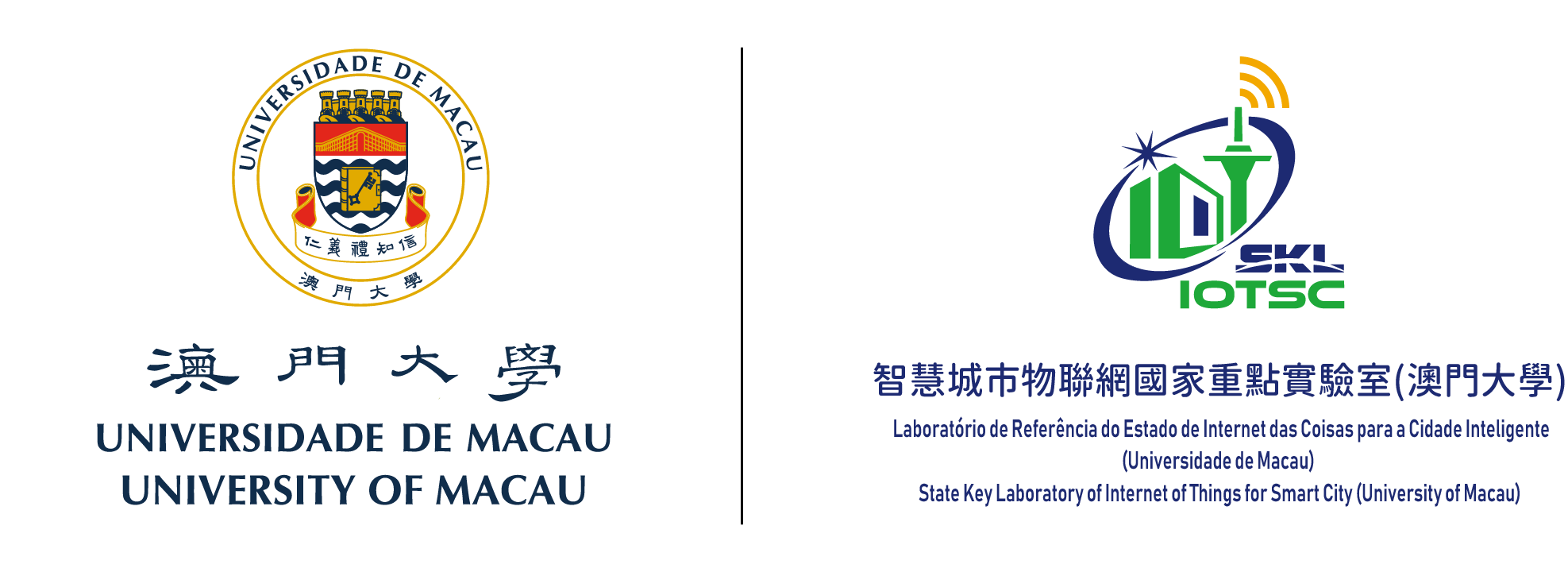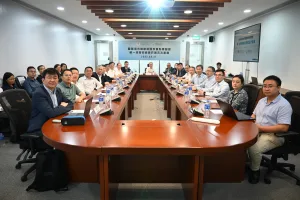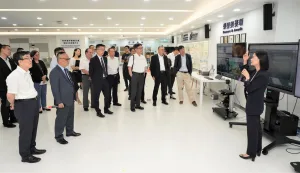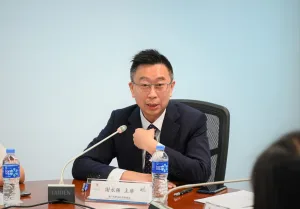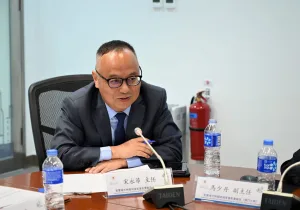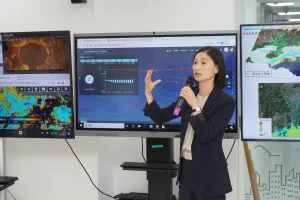The State Key Laboratory of Internet of Things for Smart City (SKL-IOTSC) of the University of Macau (UM) recently held its fifth Academic Committee meeting and reported on its latest research achievements and progress. The president and members of the committee highly praised the research achievements made by the laboratory.
The meeting was attended by Che Weng Keong, president of the Administrative Committee of the Science and Technology Development Fund of the Macao SAR; Mei Hong, Cheng Shijie, and Jin Hongguang, members of the Chinese Academy of Sciences; Fan Weicheng, Wang Endong, and Zhang Ping, members of the Chinese Academy of Engineering; Yonghua Song, rector of UM and director of SKL-IOTSC; Lionel Ni, founding president of the Hong Kong University of Science and Technology (Guangzhou); Lv Weifeng, vice president of Beihang University; Xu Cheng-Zhong, dean of the Faculty of Science and Technology at UM; Wu Jianping, professor at Tsinghua University; Jiang Tao, professor at Huazhong University of Science and Technology; and ten key researchers of SKL-IOTSC.
The meeting was chaired by Mei Hong, chair of the Academic Committee. Che Weng Keong said in his speech that SKL-IOTSC has made many significant breakthroughs since its inception. Under the leadership of Song and with the dedication of the researchers, it has made remarkable achievements and won a number of the Macao Science and Technology Award, the National Award for Excellence in Innovation, and the Guanghua Engineering Science and Technology Prize, which is regarded as the most prestigious award in the field of engineering in China. In the field of smart city development and technological innovation, the laboratory has built a world-class smart city research platform, covering a number of major areas such as urban big data, smart integrated energy management, autonomous driving technology, digital simulation of ocean disasters, and super intelligent computing. In response to the global energy crisis, it took UM as a pilot unit and has successfully developed the University of Macau Smart Integrated Energy Management Platform, which enables intelligent data collection and remote control of the energy system and effectively improves energy efficiency. The laboratory has also achieved remarkable results in the field of intelligent driving. It has developed the key technologies and platforms for Collaborative Intelligence‐driven Autonomous Vehicles and conducted testing and research on an autonomous bus for application in future intelligent transport systems. At the same time, the laboratory has developed a variety of sensors through unique and innovative research methodologies and interdisciplinary collaboration, such as the use of fibre optic sensing technology for monitoring and early warning of the Hong Kong-Zhuhai-Macao Bridge. These achievements of the laboratory provide strong support for the sustainable development and intelligent transformation of cities.
Song said that SKL-IOTSC will continue to adhere to its commitment, take outstanding talent as the cornerstone, and reach new heights in scientific research, so as to contribute to the city’s intelligent transformation and sustainable development with its strengths in science and technology and make substantial contributions to the development strategies of Macao and the country.
In addition, Ma Shaodan, associate director of SKL-IOTSC, reported on the development progress and research results of the laboratory in 2023 and introduced its future development plan and key tasks. The members of the Academic Committee highly praised the laboratory’s achievements in scientific and technological innovation, talent cultivation, industry-academia collaboration, and open research projects. They also suggested that it should strive to make progress in major research projects, deepen research on fundamental theories and technologies, continuously promote the commercialisation of research results, and make full use of Macao’s strengths to participate in major national science and technology projects.

